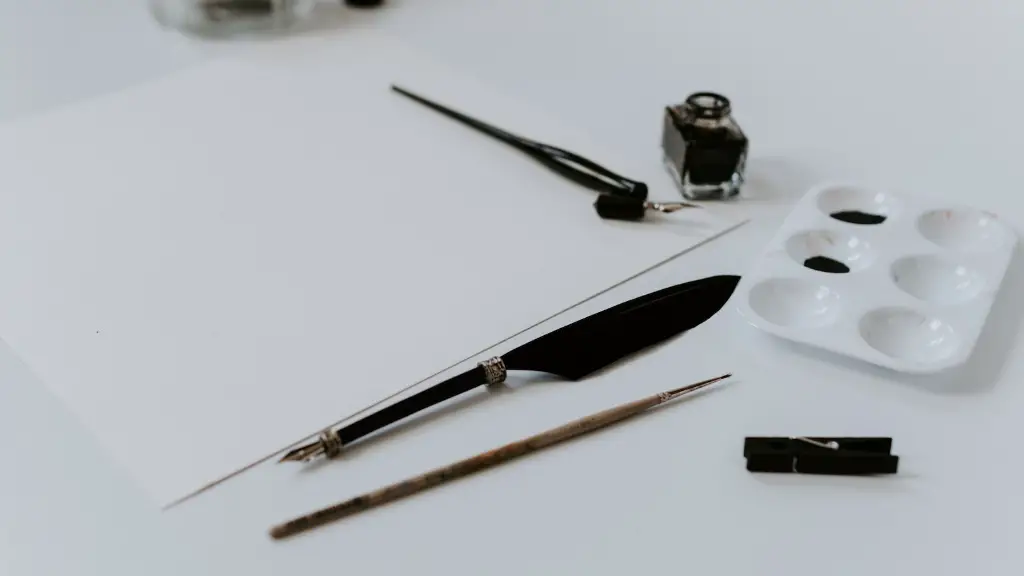Understand the Poetry Publication Process
Submitting your poetry for publication can be a daunting task, especially if you don’t know where to start or how the process works. Knowing the different steps of the publishing process and what to expect will help you understand the timeline, the expectations, and the feedback you are likely to receive from editors.
Create a Unique Body of Work
Before submitting your poetry to any publication, make sure that you have a strong and unique body of work. Readers have access to a large volume of work, so it is essential that your writing stands out from the crowd. If you already have some poems written, edit and revise them to make sure that it is the best version of your work. If you are unsure, seek feedback from other poets and readers. It might be helpful to attend writing workshops or join a local poetry community to get guidance.
Research Target Markets
After creating a body of work, research potential target markets. There are many publications available to poets both online and in print. Read through the different publications and make note of the types of poems they accept, how often they publish, their submission guidelines, and any other pertinent information. Knowing where to submit your work ahead of time will save you time and effort as you go through the submission process.
Find Quality Craftsmanship
Editors are looking for quality craftsmanship when publishing poetry. They are looking for metaphors, images, the use of poetic devices, scansion, etc. Go through your poems and make sure that the language is precise and that you are conveying your thoughts and feelings accurately. If you have any doubts, research and study poems by established writers to gain a deeper understanding of what it takes to write a great poem.
Meet Submission Requirements
Once you have identified target markets and have your poems ready to go, make sure you read the submission guidelines and requirements that the publication lists. Most guidelines provide an overview of how the editors prefer the submissions to be formatted, how many poems you can submit, and the word count involved. If you fail to meet their requirements, your work will likely be rejected without being read.
Accurately Label Poems
Editors also look at the quality of the presentation. Each poem should be labeled with your name, the title of the poem, and, if there are multiple poems, a numbering system. Make sure that your name is printed clearly on each page, and that each page is numbered. Include a cover letter clearly indicating your name, address, contact details and a short biography of yourself.
Prepare for Rejection
No matter how talented you are, it is possible that some of your poems will be rejected by editors. Rejection is a part of the writing process, and all famous writers have faced rejection in some capacity. Do not let the rejections stop you from continuing to write and submit your work, and acknowledge that poetry is subjective and that there may be an audience for your poetry if you keep submitting it.
Track and Respond to Feedback
If you submitted your poetry and got a response from the publication, then make sure to read the feedback carefully. It is important to learn from rejections and grow as a writer so that you can improve your work. Respond to the comments in a polite manner and thank the editors for their time.
Submit Regularly and Diversify Submissions
If you don’t get a response from your submissions despite following all their guidelines, it might be helpful to diversify your submissions and submit to different publications. Make sure to also submit regularly so that you don’t lose relevance as a writer.
Understand Rights and Copyrights
Before submitting your work, it is highly advisable to understand the rights and copyrights associated with submitting your work. Make sure to read the terms and conditions of submissions carefully and understand if they are asking for exclusive publishing rights or if they are using your work as a promotional tool.
Negotiate Appropriate Fees
Once you understand the rights, you should also discuss payment or fees prior to submitting your work. Get an estimate of the fees upfront and negotiate for a reasonable payment for the use of your work.
Maintain Professionalism and Attitude
Finally, as you go through the submission process, maintain professional conduct. Respond promptly to editors’ comments and emails and always keep an open attitude. It could take some time to get your work published, so make sure to continue writing and submitting work, and carefully track its progress.



